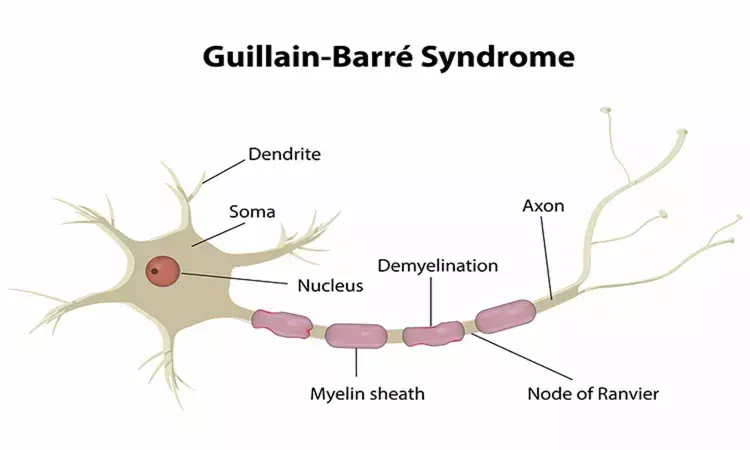- Home
- Medical news & Guidelines
- Anesthesiology
- Cardiology and CTVS
- Critical Care
- Dentistry
- Dermatology
- Diabetes and Endocrinology
- ENT
- Gastroenterology
- Medicine
- Nephrology
- Neurology
- Obstretics-Gynaecology
- Oncology
- Ophthalmology
- Orthopaedics
- Pediatrics-Neonatology
- Psychiatry
- Pulmonology
- Radiology
- Surgery
- Urology
- Laboratory Medicine
- Diet
- Nursing
- Paramedical
- Physiotherapy
- Health news
- Fact Check
- Bone Health Fact Check
- Brain Health Fact Check
- Cancer Related Fact Check
- Child Care Fact Check
- Dental and oral health fact check
- Diabetes and metabolic health fact check
- Diet and Nutrition Fact Check
- Eye and ENT Care Fact Check
- Fitness fact check
- Gut health fact check
- Heart health fact check
- Kidney health fact check
- Medical education fact check
- Men's health fact check
- Respiratory fact check
- Skin and hair care fact check
- Vaccine and Immunization fact check
- Women's health fact check
- AYUSH
- State News
- Andaman and Nicobar Islands
- Andhra Pradesh
- Arunachal Pradesh
- Assam
- Bihar
- Chandigarh
- Chattisgarh
- Dadra and Nagar Haveli
- Daman and Diu
- Delhi
- Goa
- Gujarat
- Haryana
- Himachal Pradesh
- Jammu & Kashmir
- Jharkhand
- Karnataka
- Kerala
- Ladakh
- Lakshadweep
- Madhya Pradesh
- Maharashtra
- Manipur
- Meghalaya
- Mizoram
- Nagaland
- Odisha
- Puducherry
- Punjab
- Rajasthan
- Sikkim
- Tamil Nadu
- Telangana
- Tripura
- Uttar Pradesh
- Uttrakhand
- West Bengal
- Medical Education
- Industry
Cancer tied to elevated risk of Guillain-Barre syndrome: Study

Denmark: A recent study in the journal Neurology has revealed that people with certain cancer types may be at increased risk of developing Guillain-Barré syndrome (GBS). The findings of the study suggest the presence of some unidentified factors in several types of cancer that drives this association.
GBS is a rare disorder that often begins in the lower extremities and ascends over time with the loss of reflexes that causes muscle weakness or even paralysis in most severe cases. Some cases start a few days or weeks following a respiratory or gastrointestinal viral infection. Often, GBS is reversible. Cancer is shown to increase the risk of GBS development due to molecular mimicry or immunosuppression, but the exact relationship is not clear.
Against the above background, Lotte Sahin Levison, Department of Neurology, Aarhus University Hospital, Aarhus, Denmark, and colleagues aimed to determine the association between incident cancer and the following risk of GBS development in a nationwide population-based case-control study.
The study included all patients with first-time hospital-diagnosed GBS in Denmark between 1987 and 2016 and 10 age, sex, and index date-matched population controls per case. Incident cancer diagnoses were identified between six months prior to and two months after the GBS index date. Conditional logistic regression was used to compute ORs as a measure of relative risk and performed stratified analyses to assess the impact of cancer on GBS risk in strata of calendar periods, sex, and age.
In sensitivity analyses, the researchers examined incident cancers in both a broader exposure window (one year before to three months after GBS index date) and a narrower window (six months to one month before the GBS index date) to assess any potential risk of survival bias induced by including cancer diagnoses potentially made after GBS diagnosis.
Based on the study, the researchers found the following:
- Of the 2,414 patients with GBS and 23,909 controls included, 49 cases (2.0%) and 138 controls (0.6%) had a recent cancer diagnosis, respectively, yielding a matched odds ratio (OR) of 3.6 for GBS associated with cancer.
- Stratification by calendar time, gender, and age showed robust results for the association between cancer and GBS, with no major variations.
- Broadening and narrowing the exposure window produced slightly weakened associations of OR, 2.4 and OR, 2.5, respectively.
- The GBS ORs were highest for cancers of the lymphatic and hematopoietic tissue (OR, 7.2), respiratory tract (OR, 5.6), prostate and other male genital organs (OR, 5.0), and breast cancer (OR, 5.0).
"While our study suggests that people with cancer have a greater risk of developing Guillain-Barré syndrome, it is important that people with cancer know the overall risk of developing Guillain-Barré is still very small," said Levison in a press release.
"In this study, incident cancer was associated with a markedly increased risk of subsequent GBS development," wrote the authors. "The results suggest that yet unidentified factors present in several types of cancer drive this association."
Reference:
Association Between Incident Cancer and Guillain-Barré Syndrome Development: A Nationwide Case-Control Study Lotte Sahin Levison, Reimar Wernich Thomsen, Søren Hein Sindrup, Henning Andersen Neurology Mar 2022, 10.1212/WNL.0000000000200015; DOI: 10.1212/WNL.0000000000200015
KEYWORDS: cancer, Guillain-Barré syndrome, GBS, Neurology journal, American Academy of Neurology, Lotte Sahin Levison, incident cancer, lymphatic,hematopoietic tissue, prostate,respiratory tract, breast
Dr Kamal Kant Kohli-MBBS, DTCD- a chest specialist with more than 30 years of practice and a flair for writing clinical articles, Dr Kamal Kant Kohli joined Medical Dialogues as a Chief Editor of Medical News. Besides writing articles, as an editor, he proofreads and verifies all the medical content published on Medical Dialogues including those coming from journals, studies,medical conferences,guidelines etc. Email: drkohli@medicaldialogues.in. Contact no. 011-43720751


